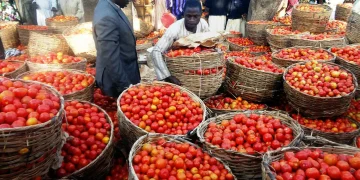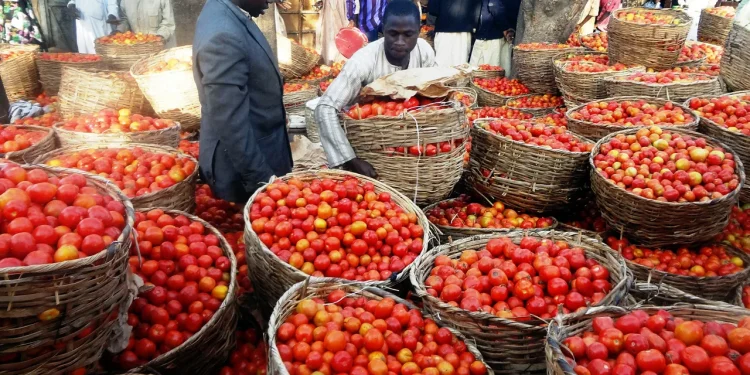Rising Costs and Alternatives Highlight Need for Sustainable Solutions in Vegetable Farming
Nigeria, a country with significant potential in vegetable production, is currently facing a critical shortfall in its tomato output. Despite its advantageous agricultural conditions, the nation’s tomato industry is grappling with multiple challenges, including pest invasions, post-harvest losses, and the inherent seasonality of tomato cultivation. These issues have culminated in a dramatic increase in tomato prices, with costs rising over 100 percent within the year, profoundly affecting both consumers and the agricultural market.
The impact of this shortage extends beyond the fields, reaching into the homes and kitchens of Nigerian families. The sharp price increase has strained household budgets, with a N1,000 purchase no longer sufficient to cover a week’s worth of meals that include fresh tomatoes. This has forced many households to reconsider their culinary practices and explore more budget-friendly alternatives.
In the context of Nigeria’s broader economic environment, where inflation is at its highest in five years according to the National Bureau of Statistics, the affordability of tomatoes has become a pressing concern. This scarcity has made fresh tomatoes less accessible, driving consumers towards alternative products such as tomato paste, which can replicate the taste of fresh tomatoes at a lower cost.
Products like Gino tomato paste, along with its variants like Gino Pepper & Onion and Gino Party Jollof, have emerged as popular substitutes, offering flavorful and affordable options for Nigerian dishes. Additionally, some consumers are turning to red bell peppers as a substitute to achieve a similar taste and color in their meals.
This situation underscores the need for more sustainable solutions in vegetable farming in Nigeria. For farmers, agronomists, and those involved in the agricultural supply chain, addressing these challenges through improved pest management, reducing post-harvest losses, and exploring innovative farming techniques could help stabilize tomato production and prices.
For producers of fertilizers and plant protection products, there is a clear opportunity to support the agricultural sector with effective solutions that can help mitigate these challenges. Meanwhile, scientists and researchers can contribute by developing more resilient tomato varieties and exploring new methods of cultivation that can reduce the impact of seasonality.
The ongoing tomato shortage serves as a reminder of the importance of a robust and sustainable agricultural sector that can withstand the pressures of both natural and economic challenges.































